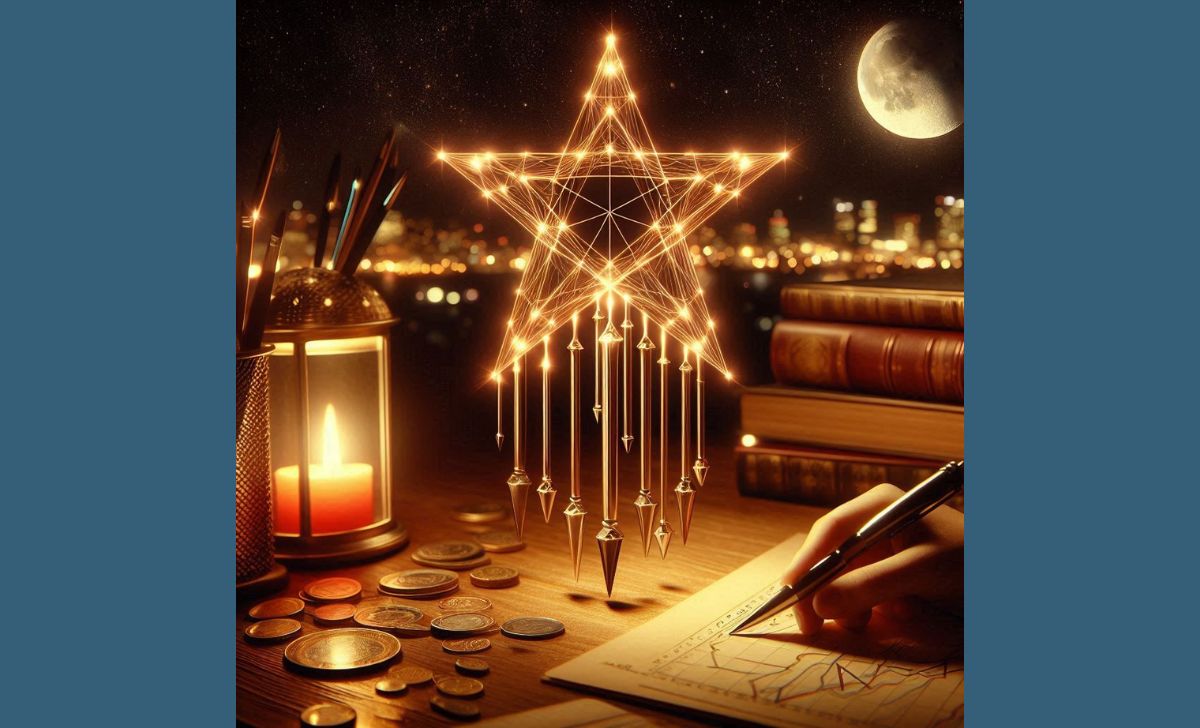Evening Star Candlestick Pattern is one of the most reliable reversal patterns in technical analysis. Recognized for its ability to forecast bearish reversals, the pattern is simple to spot yet highly effective when used in the right market context.
Mastering the Evening Star candlestick pattern can help you better anticipate market turns and improve your overall trading decisions. In this article, you’ll learn how to recognize and analyze the Evening Star candlestick pattern through a simple, 3-step guide designed for traders of all levels.

What is the Evening Star Candlestick Pattern?
The Evening Star candlestick pattern is a classic three-candle formation that signals a potential bearish reversal in the market. It commonly appears after a strong uptrend and indicates that bullish momentum is fading and sellers may be gaining control.
This pattern is widely used by traders and technical analysts due to its reliability and clarity when confirming a shift in trend direction. Here’s a breakdown of its three components:
First Candle – Strong Bullish Candle
The pattern begins with a large bullish (green or white) candlestick, reflecting strong buying pressure and continued optimism among traders. This candle confirms the current uptrend is still in play.
Second Candle – Indecision or Weak Momentum
The next candle is typically a small-bodied candle, such as a doji or spinning top, that gaps up from the first. It shows that the bulls are losing momentum, and indecision is entering the market. This candle can be bullish or bearish, but its size and position are what matter most.
Third Candle – Strong Bearish Candle
The third and final candle is a large bearish (red or black) candle that closes well into the body of the first candle. This strong selling action confirms that bears have taken over and a potential downward reversal is underway.
Now that you understand what the Evening Star candlestick pattern looks like and what it signals, let’s break down how to analyze it effectively in three simple steps.

A 3-Step Guide to Analyzing the Evening Star Candlestick Pattern
Learn how to detect potential reversals with this simple 3-step guide to analyzing the Evening Star candlestick pattern.
Step 1: Identify the Right Market Context
Before identifying the Evening Star candlestick pattern, it's essential to understand the context in which it forms. This pattern is only significant if it appears after an uptrend. If there is no clear uptrend before the pattern, its reliability decreases.
Look for signs of an exhausted rally — such as declining volume, resistance zones, or overbought indicators like RSI (Relative Strength Index). These factors increase the pattern's validity and help filter out false signals.
Also, be cautious of patterns that form in choppy or sideways markets. The Evening Star is most effective when it develops in trending environments.
Learn more information through the article: Evening star candle: Is It Reliable? Pros, Cons, and Trading Tips

Step 2: Recognize the Pattern Structure
Once the right context is established, move on to recognizing the actual structure of the Evening Star candlestick pattern:
- First candle: A long bullish (green or white) candle. It shows strong buying pressure and continuation of the current uptrend.
- Second candle: A small-bodied candle that gaps up from the first. This can be a spinning top or doji, indicating indecision or a slowdown in bullish momentum.
- Third candle: A long bearish (red or black) candle that closes well into the body of the first candle. This confirms that sellers have taken over.
The gap between the first and second candles can vary depending on the market, but a visible separation strengthens the pattern. The third candle should ideally close below the midpoint of the first candle’s body for stronger confirmation.

Step 3: Confirm with Volume and Indicators
To increase the reliability of the Evening Star candlestick pattern, it’s advisable to use confirmation tools such as volume and technical indicators:
- Volume: A spike in volume on the third candle reinforces the idea that sellers are actively entering the market.
- RSI or Stochastic: If these indicators show overbought conditions before the Evening Star forms, it strengthens the bearish signal.
- Moving Averages: Look for the price to cross below a key moving average (e.g., 20-day or 50-day MA) after the pattern appears.
Traders often wait for a fourth candle — a confirmation candle — to close below the third candle to avoid false breakouts or whipsaws.
Evening Star Candlestick Pattern plays a crucial role in helping traders detect market reversals after a strong uptrend. While no pattern guarantees success, combining the Evening Star with other forms of technical analysis can significantly enhance its effectiveness. Whether you’re new to trading or looking to sharpen your skills, understanding this pattern can significantly improve your decision-making process.
Learn more information through the article: Evening star candlestick: How to Use It Effectively in Forex Technical Analysis